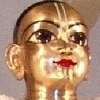Sign in to follow this
Followers
0

Paramatma compared with the Holy Ghost
By
gHari, in Spiritual Discussions
Rate this topic

By
gHari, in Spiritual Discussions
Rate this topic